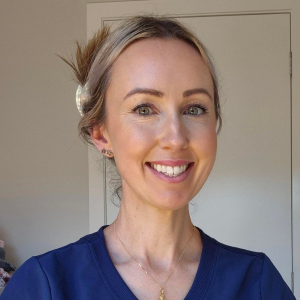Reflective practice in nursing education – Linking theory with practice
Reflection is a powerful skill that helps you connect the theory you’ve learned with what you’re doing in practice. It takes effort, but it’s worth it. When you reflect, you’ll start to notice how your values, beliefs, and abilities shape how you see and respond to situations.
As you prepare for your nursing career, reflection will help you learn from your experiences, deepen your knowledge, and apply what you’ve learned in the future. It brings meaning to what you’ve gone through and helps you spot patterns in how you work and grow. Reflection also highlights areas where you can improve and encourages lifelong learning.
From your first year of nursing school, reflection has been part of your learning, and by now, it’s an essential skill. It’s what will help you face the challenges of stepping into the workforce with confidence. Reflecting regularly can:
- Help you bounce back from the demands of clinical placements and assignments.
- Build your confidence and belief in yourself.
- Strengthen your ability to think critically, make sound judgments, and grow into a professional ready to provide excellent patient care.
When you reflect on your experiences—both good and bad—you turn them into valuable lessons that prepare you to adapt and succeed in the future.
Relationship between reflection and education
As you wrap up your nursing studies, it’s all about getting ready for the transition into practice. Reflection can help you grow into a confident, professional nurse by:
- Boosting your knowledge, communication, and professionalism.
- Helping you navigate the challenges you’ll face in the healthcare environment.
With practice and support, you’ll find reflection makes it easier to learn, adapt, and thrive as you take on new responsibilities.
Reflection lets you link your actions to your thoughts, complementing your formal education with real-world learning. It can:
- Sharpen your critical thinking, judgment, and problem-solving skills.
- Help you apply what you’ve learned in theory to real-life situations.
- Build the confidence and adaptability you’ll need to thrive in fast-paced and dynamic environments.
Reflection can also help ease the shock of transitioning into full-time practice. It gives you:
- A way to work through emotions and challenges by breaking down problems.
- A chance to plan your next steps and think about how to approach similar situations in the future.
- Insights into your own strengths and areas for improvement, setting you up for personal and professional success.
Self-reflection journals
Reflective practices like self-reflective journaling can help you grow as a professional. Journaling is a great way to boost your self-awareness and fine-tune how you solve problems and handle challenges.
When you journal, you can organise your thoughts, express your feelings, and track your progress in a structured way. This practice helps you:
- Spot patterns in your growth by looking back on previous entries.
- Set and achieve goals that build your confidence and competence.
- Gain a clearer understanding of how you’re feeling and responding to situations, which improves your communication and decision-making skills.
Reflective practice is a cornerstone of nursing education, shaping students into competent, thoughtful clinicians. Whether through self-reflection journals or other methods, developing this skill equips future nurses to thrive in their careers, continually learn, and provide the highest quality care.
Who wrote this Guide?
Jessie Bange | Peninsula Health
Jessie Bange, University Academic sessional educator and CNS, holds a Graduate Diploma in both Medical-Surgical Nursing and Education, alongside a Bachelor of Nursing (Honors). She has worked across various medical fields, including Emergency, Orthopedics, Neurology, and Oncology. Currently serving on an acute care ward, Jessie is advancing her education with a master's degree in medical-surgical nursing. Since presenting her original research on graduate nursing education at the ANMF conference, Jessie has committed to enhancing patient care, supporting colleagues, and guiding novice nurses with her growing expertise.
References
Murillo-Llorente, M. T., Navarro-Martínez, O., Valle, V. I., & Pérez-Bermejo, M. (2021). Using the Reflective Journal to Improve Practical Skills Integrating Affective and Self-Critical Aspects in Impoverished International Environments. A Pilot Test. International journal of environmental research and public health, 18(16), 8876. https://doi.org/10.3390/ijerph18168876
Patel, K. M., & Metersky, K. (2022). Reflective practice in nursing: A concept analysis. International journal of nursing knowledge, 33(3), 180–187. https://doi.org/10.1111/2047-3095.12350
Reljić, N. M., Pajnkihar, M., & Fekonja, Z. (2019). Self-reflection during first clinical practice: The experiences of nursing students. Nurse education today, 72, 61-66. https://doi.org/10.1016/j.nedt.2018.10.019
Shin, S., Lee, I., Kim, J. & Oh, E. & Hong, E. (2023). Effectiveness of a critical reflection competency program for clinical nurse educators: a pilot study. BMC Nurs 22, 69. https://doi.org/10.1186/s12912-023-01236-6
Walsh, P., Owen, P. A., Mustafa, N., & Beech, R. (2020). Learning and teaching approaches promoting resilience in student nurses: An integrated review of the literature. Nurse education in practice, 45, 102748. https://doi.org/10.1016/j.nepr.2020.102748




